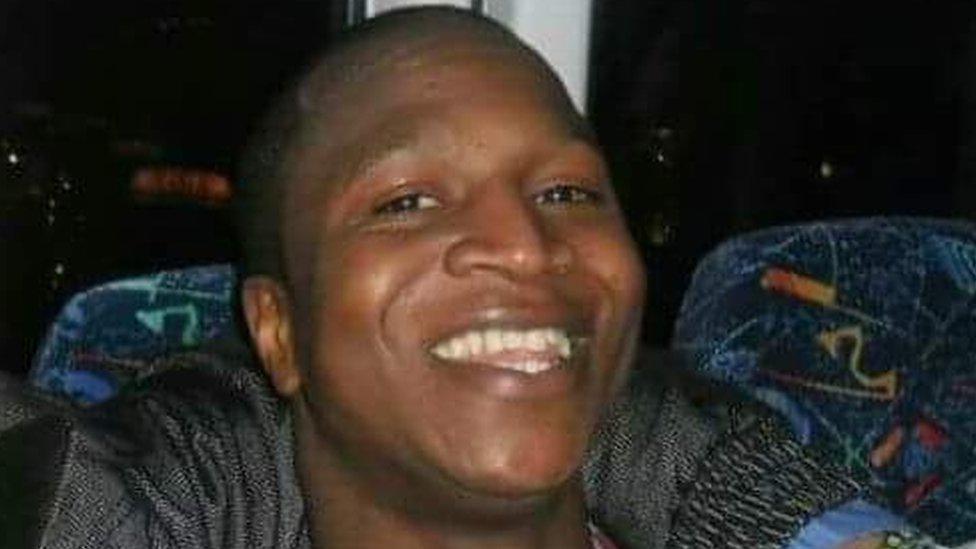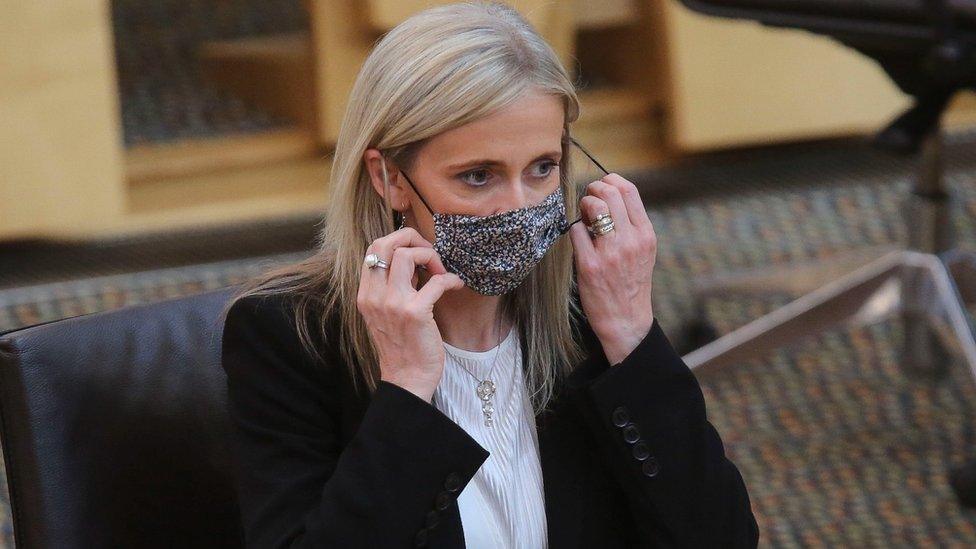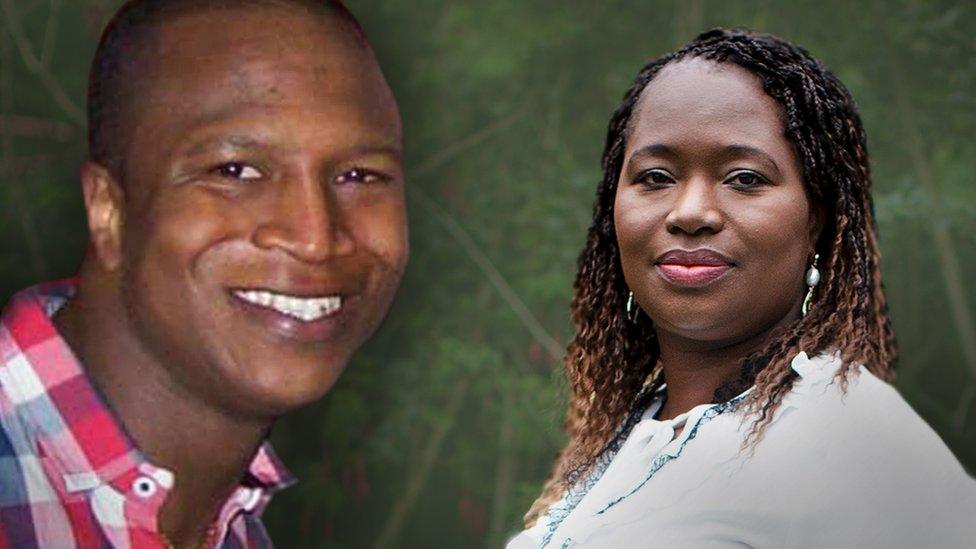Sheku Bayoh inquiry: Crown rejects calls for police evidence assurances
- Published

Sheku Bayoh died after being restrained by police officers
Statements from police officers at the public inquiry into the death of Sheku Bayoh could be used in evidence against them in the future, the Crown has said.
The solicitor general has rejected a request for an assurance that their evidence would not be used in future prosecution.
The inquiry's chairman had asked for the guarantee following a request from Scottish Police Federation lawyers.
The move had been opposed by the family of Mr Bayoh.
The 31-year-old died in police custody after being restrained by officers in Kirkcaldy, Fife, in May 2015.
Last month, lawyers for a number of officers asked for a guarantee that their evidence to the public inquiry would not be used in any future prosecution or misconduct proceedings.
They said that without the assurance, some officers could exercise their legal right not to answer questions where they might incriminate themselves.
Lord Bracadale, the chairman of the inquiry, asked for undertakings from the solicitor general so that officers could give "full and frank" evidence.
He also said that current or former officers could still face prosecution if new information emerged from other sources.

Solicitor General Ruth Charteris QC said prosecutors must act in the public interest
Solicitor General Ruth Charteris QC said the Crown reserved its right to prosecute in all matters related to the case.
"Prosecutors must consider all cases on their individual facts and circumstances and act in the public interest," she said.
"I have considered all the information available to me, and I am not currently satisfied that it is in the public interest to grant the undertakings.
"It is not known if officers will invoke their right to claim privilege against self-incrimination.
"Nor is it known what impact any such claim would have on the totality of the evidence available to the inquiry."
The inquiry, external, which is due to begin on 10 May, was set up to examine:
the immediate circumstances leading to Mr Bayoh's death
how the police dealt with the aftermath
the subsequent investigation into the death
whether race was a factor
Lord Bracadale said the solicitor general had left open the possibility of revisiting the issue for each of the 12 police officers on an individual basis.
"I will now seek statements from each of the officers to ascertain how much information they are willing to provide to the inquiry without undertakings from the solicitor general," he said.
"Once those statements have been obtained by my team, I will assess how best to proceed."
He said the inquiry was "fully committed" to finding out the truth about how Sheku Bayoh died and would "keep all options open" when it came to gathering the "fullest possible evidence".

Sheku Bayoh and his sister Kadi Johnson, who believes that race played a part in her brother's death
Lord Bracadale also asked Police Scotland for an assurance that it would not seek to rely on evidence given to the inquiry by an officer in any future disciplinary proceedings against that officer.
However, Deputy Chief Constable Fiona Taylor declined to give such an undertaking.
She said officers had a duty to give "full and frank testimony" to the public inquiry.
Mr Bayoh's family have claimed race played a part in his death and criticised the subsequent investigation.
Their lawyer, Aamer Anwar, said: "No quarter should be given to any of the 12 officers or former officers - no guarantee, no offers of immunity."
He said that nothing should be done to delay or obstruct the search for truth.
"The Bayoh family appeal directly to those police officers, if you have nothing to hide then you have nothing to fear from coming to the inquiry and giving full and frank evidence, that is the very least Sheku's family are entitled to," he added.
Lawyers for the officers previously said the request was usual practice for people who were called to give evidence in such inquiries.
David Kennedy, deputy general secretary of the Scottish Police Federation, said: "We note the solicitor general's position and will ensure that we continue to provide professional legal advice and support to those whom we are representing."